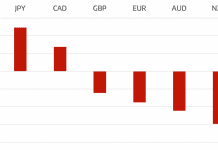For over a century Switzerland has developed its secure banking system around its commitment to privacy protection. Due to banking secrecy and lack of information exchange, Swiss banks have acted as tax havens and allowed for US firms and individuals to commit tax evasion. This fact has resulted in a number of different attacks against Swiss sovereignty.
Background of Swiss banking secrecy
Swiss banking secrecy is the legal principle under which Swiss banks are allowed to protect personal information about their customers. Swiss law (Banking Act of 1934) strictly limiting any information shared with third parties, including tax authorities, foreign governments or even Swiss authorities, except when requested by a Swiss judges subpoena.
Key issues:
- Covers all business relations with the bank
- Not limited in time
- Concerns all the people who work for the bank
- Key provisions:
- Regulated by both civil law and criminal law
- Privacy is statutorily enforced
- Reveal equals imprisonment of 6 months or 50,000 francs
- Negligence equals 30,000 francs
The debate on the future of Swiss banking secrecy is a key issue in Swiss politics. Whereas left-wing parties such as SP advice the automatic exchange of information, at least with the countries of the European Union. SVP clearly defends the remains of Swiss banking secrecy. SVP reminds the other political parties and the Swiss population of the benefits of Swiss banking secrecy and points to the disturbing facts that, opposed to whats proclaimed, there is absolutely no such thing as a level playing field. One just has to take into consideration the examples given of the US or the Channel Islands. Singapore is another example of a financial place, that directly profits from the international pressure on Switzerland. Parties in the middle of the political spectrum (FDP, BDP, CVP) vary from time to time depending on the issue.
US Strategy
– Unilateral pressure
US is imposing unilateral laws on the entire World, such as FATCA, which seeks to coerce Foreign Financial Institutions into acting as deputies for the IRS. The primary goal of FATCA is simple: raise revenue. Investigating foreign banks is a time consuming task often revealing limited relevant information and recovering only a fraction of lost tax revenue.
– Bilateral pressure
US has initiated actions that specifically target Switzerland, such as legal attacks on individual institutions and pressure for tax agreements.
Due to banking secrecy and lack of information exchange, Swiss banks have acted as tax havens and allowed for US firms and individuals to commit tax evasion.
US – Swiss Tax Treaty: revised existing treaty based on the rules set out by the OECD Model Tax Convention (art. 26). It allows for greater information exchange. But there is still room for more improvements (automatic exchange of information). When making a request under the new treaty, requesting state must still provide information sufficient to identify the person under examination or investigation.
– Multilateral pressure
- US is actively supporting the anti-tax competition project of the OECD.
- Model Tax Convention
- Global Forum on Taxation
The Global Forum brings together jurisdictions, both OECD and non-OECD, that have made commitments to transparency and exchange of information and have worked together to develop the international standards for transparency and exchange of information in tax matters. The Global Forum is mandated to ensure that all jurisdictions adhere to the same high standard of international cooperation in tax matters.
Tax Information Exchange Agreements
Conclusion
Some political parties, like the SP, have always been warning that the Swiss institute of banking secrecy which protects the black money of tax evaders and other criminals and potentates is not a sustainable business model. International acceptance of Swiss laws is crucial for a sustainable development of the Swiss financial market place. In view of the actual international crisis of the public finances, the Swiss policy of tax dumping and protection of tax evaders is not rational but stupid. Swiss economic depends highly on European and world economic. Worldwide sound public finances are the base for a sound world economy. Therefore it isnt astonishing that the international community has increased the pressure on Switzerland to stop harmful tax practices. What is needs is a coordinated international policy to eliminate harmful tax practices worldwide.
FATCA legislation is likely to have a significant impact on international banking secrecy laws. While the mandatory disclosure requirements will hinder Swiss banks ability to help clients evade their tax responsibilities, it likely doesnt spell the end for Swiss banking generally.
Dirk De Wolf is a writer and blogger from Aalst, Belgium. He has an BSc in Political Science and an MSc in EU-Studies from the University of Ghent. Dirk wrote his master





































